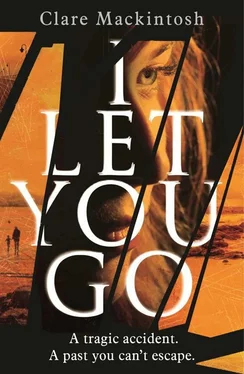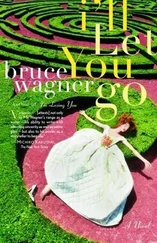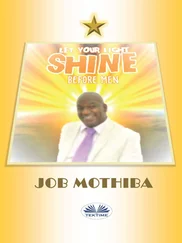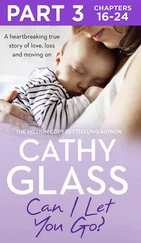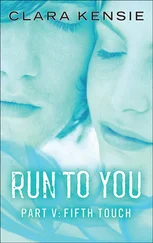‘I’ll need someone to stay late to pick up any strong leads as soon as it airs, please,’ Ray said to the group. ‘The rest we can get to in slow-time.’ There was a pause and he looked around expectantly. ‘Someone’s got to do it…’
‘I don’t mind.’ Kate waved a hand in the air and Ray gave her an appreciative glance.
‘What about the fog light Phil mentioned?’ Ray said.
‘Volvo have given us the part number, and we’ve got a list of all the garages who have been sent one in the last ten days. I’ve tasked Malcolm with contacting them all – starting with the local ones – and getting the index numbers of cars they’ve been fitted to since the collision.’
‘Okay,’ Ray said. ‘Let’s keep that in mind when we’re making enquiries but remember it’s just one piece of evidence – we can’t be absolutely certain it’s a Volvo we’re looking for. Who’s leading on CCTV?’
‘We are, boss.’ Brian Walton raised his hand. ‘We’ve seized everything we could get our hands on: all the council CCTV, and anything from the businesses and petrol stations in the area. We’ve gone for just the half-hour before the collision and the half-hour afterwards, but even so there are several hundred hours to get through.’
Ray winced at the thought of his overtime budget. ‘Let me see the list of cameras,’ he said. ‘We won’t be able to watch all of it, so I’d like your thoughts on what to prioritise.’
Brian nodded.
‘Plenty to be getting on with, then,’ Ray said. He gave a confident smile, despite his misgivings. They were a fortnight on from the ‘golden hour’ immediately following a crime, when chances of detection were highest, and although the team was working flat out, they were no further forward. He paused, before breaking the bad news. ‘You won’t be surprised to hear that all leave has been cancelled until further notice. I’m sorry, and I’ll do what I can to make sure you all get some time with your families over Christmas.’
There was a murmur of dissent as everyone filed out of the office, but no one complained, and Ray knew they wouldn’t. Although no one voiced it, they were all thinking of what Christmas would be like for Jacob’s mother this year.
4
My determination falters almost as soon as we leave Bristol. I hadn’t considered where I might go. I head blindly west, thinking perhaps I might go to Devon, or to Cornwall. I think wistfully of childhood holidays; building sandcastles on the beach with Eve, sticky with ice lollies and sun cream. The memory draws me towards the sea; calls me away from the tree-lined avenues of Bristol, away from the traffic. I feel an almost physical fear of these cars that can’t wait to overtake as the bus pulls into the station. I wander aimlessly for a while, then hand over ten pounds to a man in a kiosk by the Greyhound coaches who doesn’t care where I’m going any more than I do.
We cross the Severn Bridge, and I look down at the swirling mass of bilge-grey water that is the Bristol Channel. The coach is quietly anonymous, and here no one is reading the Bristol Post . No one is talking about Jacob. I lean back into my seat. I’m exhausted but I don’t dare close my eyes. When I sleep I’m assaulted by the sights and sounds of the accident; by the knowledge that had I been just a few minutes earlier, it would never have happened.
The Greyhound coach is going to Swansea, and I steal a glance around to see the company I’m keeping. They are students, in the main, plugged into music and engrossed in magazines. A woman my age is reading through papers and making neat notes in the margins. It seems ludicrous that I’ve never been to Wales, but now I’m glad I have no connection here. It is the perfect place for a new beginning.
I’m the last to get off, and I wait at the bus station until the coach has left, the adrenalin of my departure a distant memory. Now that I’ve made it as far as Swansea, I have no idea where to go. A man is slumped on the pavement; he looks up and mumbles something incoherent, and I back away. I can’t stay here, and I don’t know where I’m going, so I start walking. I play a game with myself: I’ll take the next left, no matter where it goes; the second right; straight ahead at the first crossroads. I don’t read the road signs, taking instead the smallest road offered at each junction, the least-travelled option. I feel light-headed – almost hysterical. What am I doing? Where am I going? I wonder if this is what it’s like to lose one’s mind, and then I realise I don’t care. It doesn’t matter any more.
I walk for miles, leaving Swansea far behind. I hug the hedgerow when cars pass, which they do with decreasing frequency now that the evening is drawing in. My holdall is slung on to my back, like a rucksack, and the straps carve grooves into my shoulders, but my pace is steady and I don’t stop. All I can hear is my breathing, and I begin to feel calmer. I don’t let myself think about what has happened, or where I’m going, I just walk. I pull my phone from my pocket and, without looking to see how many missed calls it shows, I drop it into the ditch beside me, where it splashes into the pooled water. It is the last piece connecting me to my past, and almost immediately I feel freer.
My feet start to ache and I know that, if I were to stop, and lie down here by the side of the road, I would never get up. I slow down, and as I do so, I hear a car behind me. I step on to the grass verge and turn away from the road as it passes, but instead of disappearing round the corner, it slows to a halt about five metres in front of me. There is a faint hiss from the brakes, and a smell of exhaust. Blood pounds in my ears, and without thinking I turn and run, my bag banging against my spine. I run clumsily, my blistered feet rubbing against my boots, and sweat trickles down my back and between my breasts. I can’t hear the car, and when I look over my shoulder, the movement almost unbalancing me, it has gone.
I stand foolishly in the empty road. I’m so tired, and so hungry I can’t think straight. I wonder even if there was a car at all, or whether I have projected on to this silent road the sound of rubber on tarmac because it is all I hear in my head.
Darkness descends. I know I’m near the coast now: I can taste salt on my lips, and hear the sound of the waves hitting the shore. The sign reads ‘Penfach’ and it’s so quiet I feel as though I’m trespassing as I walk through the village, glancing up at the drawn curtains keeping out the chill of the winter evening. The light from the moon is flat and white, making everything seem two-dimensional and stretching my shadow out in front of me until I’m walking far taller than I feel. I walk through the town until I can look down on to the bay, where cliffs encircle a stretch of sand as though protecting it. I pick my way down a winding path, but the shadows are deceptive and I feel the panic of empty space before my foot slides on the shale and I cry out. Unbalanced by my makeshift rucksack, I lose my balance, and bump, roll and slide my way down the rest of the path. Damp sand crunches beneath me, and I take a breath, waiting for something to hurt. But I am fine. I wonder briefly if I have become immune to physical pain: if the human body is not designed to handle both physical and emotional hurt. My hand still throbs, but at a distance, as though it belongs to someone else.
I have a sudden urge to feel something. Anything. I take off my shoes in spite of the cold and feel the grains of sand pressing against the soles of my feet. The sky is inky blue and free of clouds, and the moon sits full and heavy above the sea, its twin reflected in shimmering slices below. Not home. That is the most important thing. It doesn’t feel like home. I wrap myself in my coat and sit on my bag, my back pressed into the hard rock, to wait.
Читать дальше
